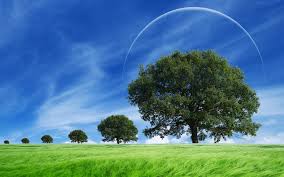natural
英 [ˈnætʃ.ər.əl]
美 [ˈnætʃ.ɚ.əl]
- adj. 自然的;物质的;天生的;不做作的
- n. 自然的事情;白痴;本位音
- n. (Natural)人名;(西)纳图拉尔
使用频率:

记忆方法
将“natural”与“nat”联想到“自然界”(nature),然后想象“ral”是“real”的一部分,表示“真正的”自然界中的事物,从而记忆“natural”意为“自然的”。
以上内容由AI生成, 仅供参考和借鉴
中文词源
natural 自然的,天生的
来自nature,自然。
英语词源
- natural (adj.)
- c. 1300, naturel, "of one's inborn character; hereditary, by birth;" early 14c. as "of the world of nature (especially as opposed to man)," from Old French naturel "of nature, conforming to nature; by birth," and directly from Latin naturalis "by birth, according to nature," from natura "nature" (see nature).
From late 15c. as "not miraculous, in conformity with nature." Meaning "easy, free from affectation" is attested from c. 1600. Of things, "not artificially created," c. 1600. As a euphemism for "illegitimate, bastard" (of children), it is first recorded c. 1400, on notion of blood kinship (but not legal status).
Natural science is from late 14c.; natural law is from early 15c. Natural order "apparent order in nature" is from 1690s. Natural childbirth first attested 1933. Natural life, usually in reference to the duration of life, is from late 15c. Natural history is from 1560s (see history). To die of natural causes is from 1570s. - natural (n.)
- "person with a natural gift or talent," 1925, originally in prizefighting, from natural (adj.). In Middle English, the word as a noun meant "natural capacity, physical ability or power" (early 14c.), and it was common in sense "a native of a place" in Shakespeare's day. Also in 17c., "a mistress."
权威例句
- 1. The ball is made of rattan — a natural fibre.
- 这个球是由一种天然纤维——省藤制成的。
- 2. Vintage ports must be decanted to remove natural sediments.
- 上等的波尔图葡萄酒必须倒入其他容器中以滤除自然沉淀物。
- 3. Mainline feminism was arguing for the inherent beauty of the natural woman.
- 主流女权主义思想倡导女性天生的自然美。
- 4. I think they saw it as a natural progression for me.
- 我想他们认为这对我来说是顺理成章的。
- 5. Lorenzo was a natural leader who made friends easily.
- 洛伦佐是天生的领袖,善于交友。